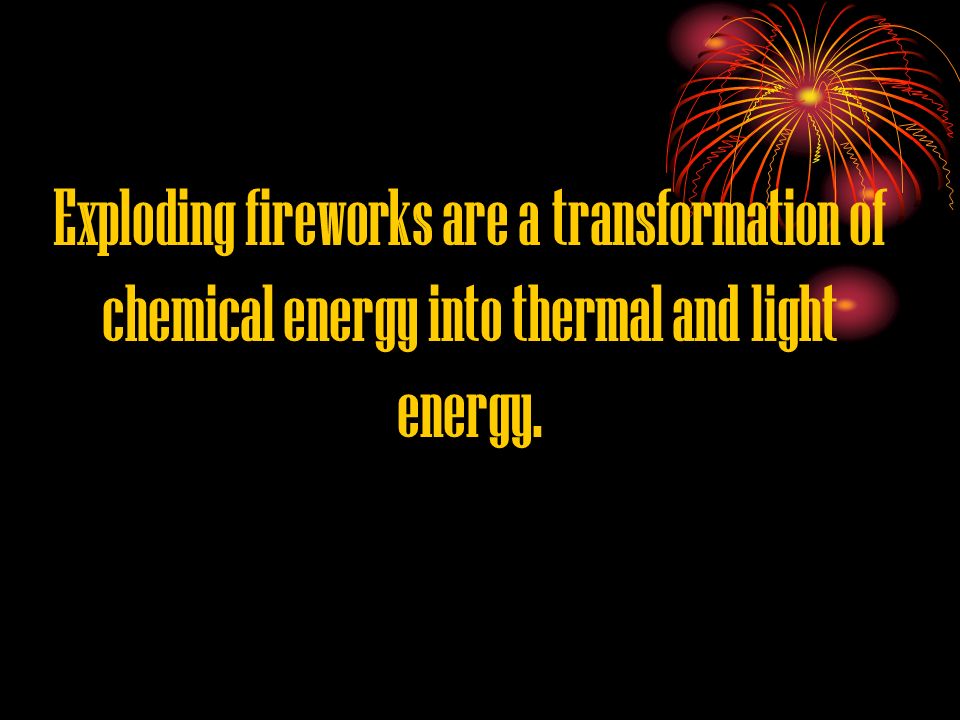2 Answers
The Science of Fireworks
Science teachers love fireworks because they teach you about chemistry and physics at the same time, in a very dynamic and colorful way.
Chemistry of fireworks
An exploding firework is essentially a number of chemical reactions happening simultaneously or in rapid sequence. When you add some heat, you provide enough activation energy (the energy that kick-starts a chemical reaction) to make solid chemical compounds packed inside the firework combust (burn) with oxygen in the air and convert themselves into other chemicals, releasing smoke and exhaust gases such as carbon dioxide, carbon monoxide, and nitrogen in the process. For example, this is an example of one of the chemical reactions that might happen when the main gunpowder charge burns.
2KNO3 (potassium nitrate) + S (sulfur) + 3C (carbon in charcoal form) → K2S (potassium sulfide) + N2 (nitrogen gas) + 3CO2 (carbon dioxide)
What makes the different colors in fireworks? That's chemistry too! Fireworks get their color from metal compounds (also known as metal salts) packed inside. You probably know that if you burn metals in a hot flame (such as a Bunsen burner in a school laboratory), they glow with very intense colors— that's exactly what's happening in fireworks. Different metal compounds give different colors. Sodium compounds give yellow and orange, for example. copper and barium salts give green or blue, and calcium or strontium make red.
Physics of fireworks
The solid chemicals packed into the cardboard case don't simply rearrange themselves into other chemicals: some of the chemical energy locked inside them is converted into four other kinds of energy (heat, light, sound, and the kinetic energy of movement). According to a basic law of physics called the conservation of energy (one of the most important and fundamental scientific laws governing how the universe works), the total chemical energy packed into the firework before it ignites must be the same as the total remaining in it after it explodes, plus the energy released as light, heat, sound, and movement.
Physics also explains why a firework shoots into the air. The charge is little more than a missile. As it burns, the firework is powered by the action-and-reaction (also known as Newton's third law of motion) in exactly the same way as a space rocket or jet engine. When the powder packed into the charge burns, it gives off hot exhaust gases that fire backwards. The force of the exhaust gases firing backwards is like the blast coming out from a rocket engine and creates an equal and opposite "reaction" force that sends the firework shooting forward up into the air.
Read the whole article here>>https://www.explainthatstuff.com/howfireworkswork.html


| 7 years ago. Rating: 2 | |

 Aqua
Aqua
 country bumpkin
country bumpkin
 quiritafquant
quiritafquant




